Subaru Forester: Maintenance and service / Fuses
CAUTION
Never replace a fuse with one having a higher rating or with material other than a fuse because serious damage or a fire could result.
The fuses are designed to melt during an overload to prevent damage to the wiring harness and electrical equipment. The fuses are located in two fuse boxes.
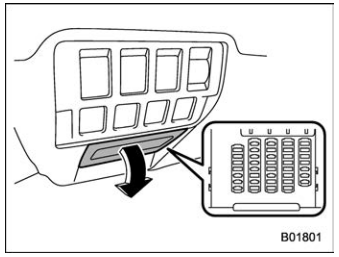
One is located under the instrument panel behind the fuse box cover on the driver’s seat side. To remove the cover, pull it out.
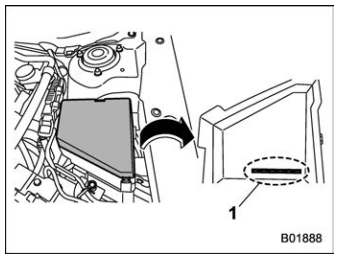
Spare fuses
The other one (main fuse box) is housed in the engine compartment. Also, the spare fuses are stored in the fuse box cover.
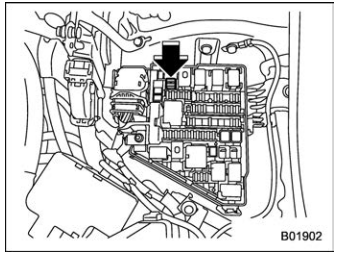
The fuse puller is stored in the main fuse box in the engine compartment.
Pinch the upper part of the fuse puller when removing it from the main fuse box.
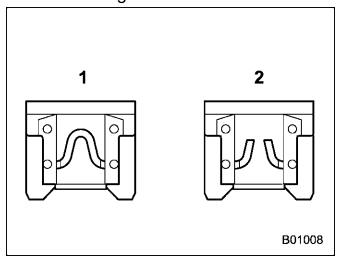
- Good
- Blown
If any lights, accessories or other electrical controls do not operate, inspect the corresponding fuse. If a fuse has blown, replace it.
- Turn the ignition switch to the “LOCK”/ “OFF” position and turn off all electrical accessories.
- Remove the cover.
- Determine which fuse may be blown.
Look at the back side of each fuse box
cover and refer to “Fuses and circuits”.
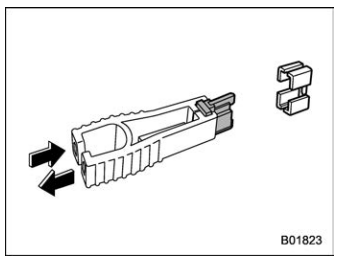
- Pull out the fuse with the fuse puller.
- Inspect the fuse. If it has blown, replace it with a spare fuse of the same rating.
- If the same fuse blows again, this indicates that its system has a problem. Contact your SUBARU dealer for repairs.
 Battery
Battery
W..
 Installation of accessories
Installation of accessories
Always consult your SUBARU dealer
before installing fog lights or any other
electrical equipment in your vehicle. Such
accessories may cause the electronic
system to malfunction if they are incorrectly
installed or if they are not suited for
the vehicle...
Other information:
Subaru Forester 2019-2026 Owners Manual: Unlocking
Carry the access key fob, and touch the sensor behind the door handle. The driver’s door handle: Either the driver’s door and fuel filler lid will unlock, or all doors and the fuel filler lid will unlock. The front passenger’s door handle: The fuel filler lid, rear gate and all doors will be unlocked...
Subaru Forester 2019-2026 Owners Manual: Handling of the sonar sensors
The 4 sonar sensors are located in the rear bumper. To ensure the proper operation of the Reverse Automatic Braking (RAB) system, observe the following precautions. Do not affix any stickers or other items on the sonar sensor or the bumper surface near the sonar sensors...
Categories
- Manuals Home
- Subaru Forester Owners Manual
- Subaru Forester Service Manual
- Reclining the seatback (if equipped)
- Disabling functions
- Low fuel warning light
- New on site
- Most important about car
